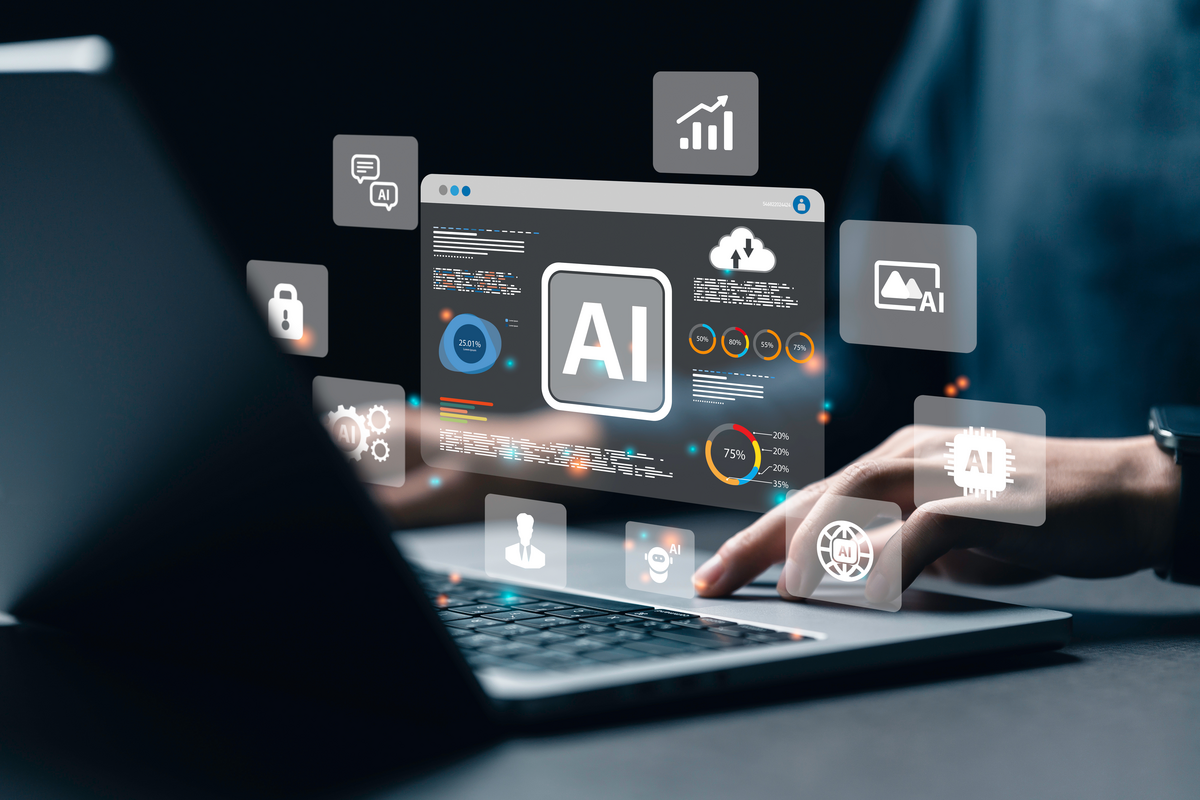It seems like ages ago when BlackBerry (BB 2.27%) was the big name in tech and whose cellphones were in hot demand. But as more innovative technologies emerged and better phones captivated consumers, the company struggled. Today, it has pivoted to focusing on enterprise software and cybersecurity.
The tech company whose phones were responsible for taking significant market share from BlackBerry was Apple (AAPL +0.13%). Its iPhones soared in popularity when they first became available, 18 years ago. Lately, however, iPhones no longer look to be cutting-edge phones as the company's rollout of new artificial intelligence (AI) features has been delayed until next year. If Apple doesn't fix this situation soon, could it risk following the same path as BlackBerry?

Image source: Getty Images.
Is Apple falling too far behind the competition?
Apple has delayed the rollout of some AI features for its iPhones, specifically to do with its Siri assistant. And that has many investors worried that rather than leading the way in AI innovation, it's playing catch up. AI capabilities are constantly evolving and the danger is that by the time Apple releases all of its AI features, there could be new ones available on rival devices.
While Apple has a large user base and there are around 1.4 billion iPhone users in the world, the company hasn't been seeing a wave of upgrades as consumers are seeing less of a reason to buy a new phone. In the company's most recent fiscal year, which ended on Sept. 28, 2024, iPhone sales totaled $201.2 billion and were flat from the previous year. And when compared to two years ago, their sales were down by a little more than 2%.
Demand doesn't look to be all that strong right now. The big question is when it comes time to finally upgrade a device, if Apple users will stick with the iPhone, or if there will be a temptation to leave to another company, whose phones may come equipped with more advanced capabilities.
Why investors shouldn't panic just yet
Apple may appear to be falling behind in AI, but that doesn't mean the business is doomed. The biggest reason why Apple may not end up being the next BlackBerry is due to one simple reason: its impressive financials. When in doubt, Apple can acquire a company or invest in a technology to bolster its growth prospects, as it has the vast financial resources to do so.
Even at its peak, BlackBerry was nowhere near the financial strength that Apple is at today. In the fiscal year that ended on Feb. 26, 2011, BlackBerry's total revenue was $19.9 billion, and its net income came in at $3.4 billion, for a profit margin of 17%. Apple, by comparison, reported a staggering $93.7 billion in profit during its most recent fiscal year, with its revenue topping $391 billion.
And Apple has also built an entire ecosystem of products and related services which integrate with its iPhones; switching to another provider simply isn't easy. For many Apple users, they may just be willing to hang on and wait for another year and hope that the next iteration of the iPhone is worth upgrading to. But switching to another provider and potentially having to change other services in order to ensure everything remains compatible, all for the sake of some AI features, doesn't seem like a high-risk scenario right now.
Unless Apple were to fall so far behind its rivals that the iPhones began to look ancient, a delayed AI rollout likely isn't worth panicking over. Apple is no BlackBerry, and it's not in danger of going down a similar path anytime soon.

NASDAQ: AAPL
Key Data Points
Should you buy Apple stock today?
Apple's brand remains strong and while a delayed AI rollout won't cripple the business, the company does need to do a better job of innovating. If iPhones fall too far behind the competition, many consumers may eventually become frustrated enough and switch to other devices.
However, I believe Apple will invest more heavily into innovation and improving its iPhones to ensure that scenario doesn't end up becoming a big problem for the company. But at more than 31 times its trailing earning, the stock is still looking a bit expensive given the challenges ahead and its recent performance. At such a a valuation, there isn't enough margin of safety there for me to consider buying the stock.
I'd suggest keeping the stock on a watch list for now. If there's more of a prolonged drop in the share price that pushes it to multiyear lows, then it might be worth buying Apple's stock on weakness. For now, however, I'd take a wait-and-see approach.






